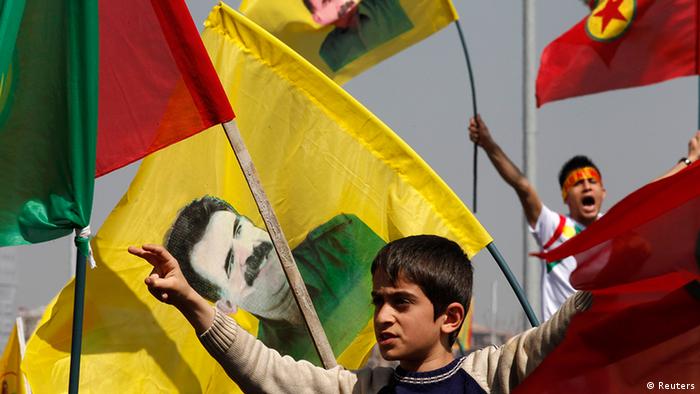A Kurdish rebel commander has announced that the group will begin withdrawing guerilla fighters from Turkey and into northern Iraq in May. The announcement comes amid a peace drive between Ankara and the rebel movement.
The Kurdistan Workers Party (PKK) chief Murat Karayilan told a news conference Thursday in the group's mountainous stronghold of Qandil in northern Iraq that the withdrawal would begin on May 8.
"As part of ongoing preparations, the withdrawal will begin on May 8, 2013," PKK leader Karayilan was quoted as saying by the pro-Kurdish Firat news agency.
However, he also warned that the pullout would come to an immediate stop should the rebels be attacked as they leave Turkey.
Karayilan said permanent peace would be reached in three phases and withdrawal would only be the first adding that the rebel forces will be based in "southern [Iraqi] Kurdistan."
The announcement follows an order by the PKK's jailed leader Abdullah Ocalan on March 21 for a historic ceasefire and a withdrawal from Turkish territory.
The PKK, listed as a terrorist group by Turkey and much of the international community, started an armed rebellion for self-rule in the Kurdish-majority southeast in 1984, which has cost around 45,000 lives, most of them Kurds.
Previous attempts at peace were crippled after splinter groups within the PKK soured peace efforts or Turkey backtracked due to nationalist group opposition.
Karayilan said Ankara would be expected to "do its part" in the second stage by abolishing "special war structures," referring to special teams fighting the rebels.
The third phase, he said, would be "normalization," and permanent peace.
Kurds roughly constitute 20 percent of Turkey's 75 million people. Turkey is believed to be home to the largest single community of ethnic Kurds out of a total population of between 25 and 35 million scattered across Iraq, Iran and Syria.
A peace settlement might somewhat help Turkey's efforts to join the European Union and improve its flawed human rights record.
hc/msh (AFP, Reuters) dw de

Comments